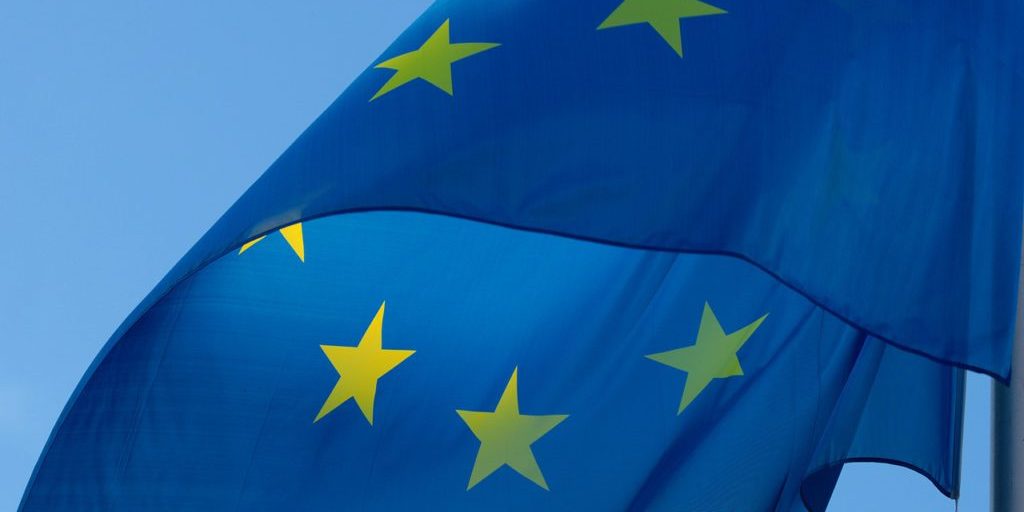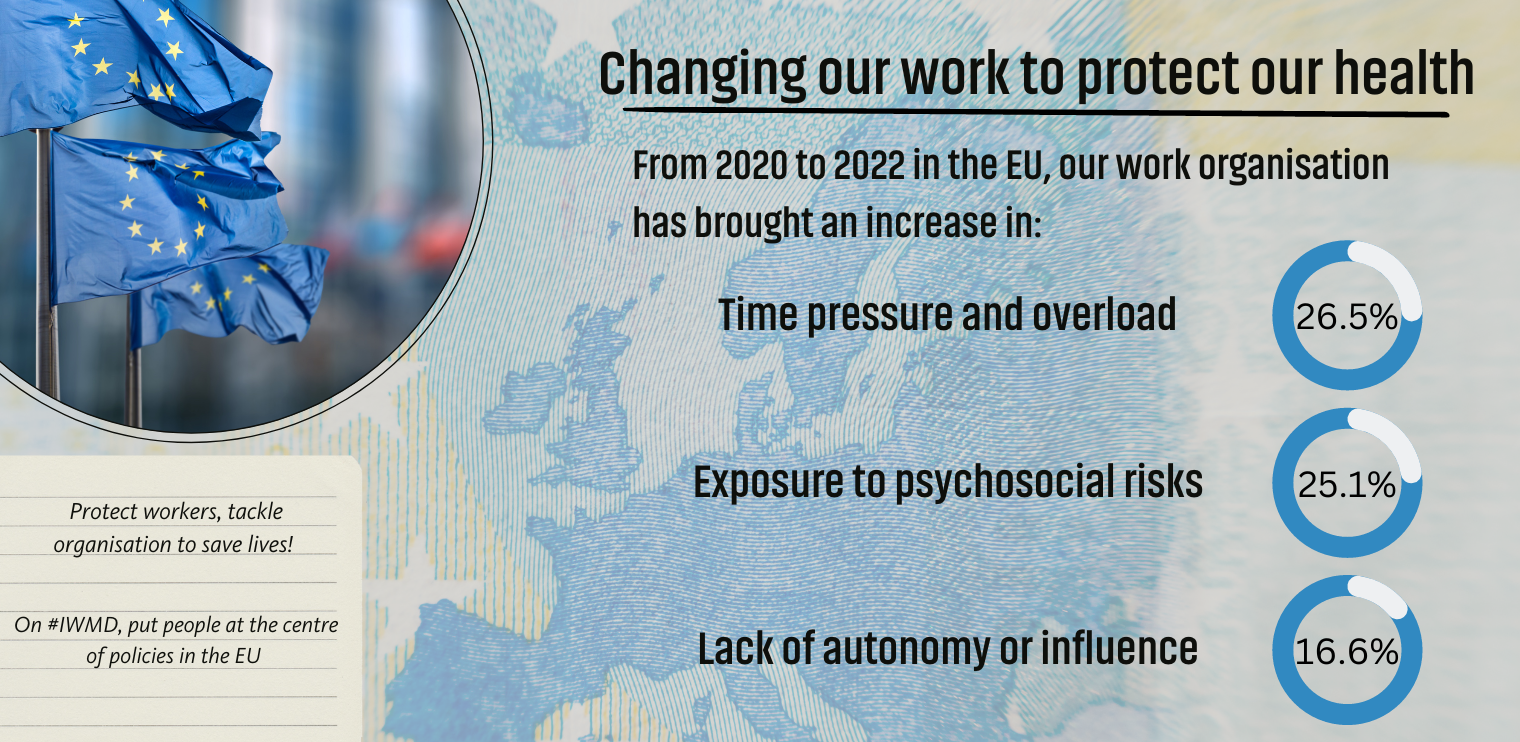
Continuing the call for change for worker’s health
Where do we stand on this workers memorial day?

April 28th is widely known as both International Workers Memorial Day and World Day for Safety and Health at Work, but recent findings show that commemoration and awareness raising are failing to alleviate the plight of workers.
The European Agency for Safety and Health at Work (EU-OSHA), in their report Occupational safety and health in post-pandemic workplaces, highlight how European workers are exposed to more risks now than before the pandemic. In speaking with over 27,000 workers throughout all 27 Member States, the report found that, on average in Europe, certain risks became more prominent. Exposure to time pressure/overload increased to 26.5%, psychosocial risks to 25%, while 66% of workers have experienced health problems caused or made worse by their work.
While there has been a general consensus post-COVID that workplace mental health must be spoken about more openly, participants across the EU are divided in their view whether disclosing a mental health condition would have a negative impact on their career: 16% ‘strongly agree’ and 34% ‘agree’ vs 13% who ‘strongly disagree’ and ‘32%’ who ‘disagree’. Awareness raising has clearly failed to change the culture within many European workplaces, with 27% of respondents reporting that stress, depression or anxiety has been caused by, or made worse due to their work.
Yet again we see non-binding initiatives resulting in workers suffering.
Trade unions have continually called on legislators to act in a more meaningful manner to eradicate exposure to risks in the workplace, with Europe’s mental health epidemic the latest in a line of preventable tragedies affecting workers and their families. While we move towards a vision of zero deaths at work in Europe, we match this ambition with an ominous reduction in workplace autonomy, increased surveillance of workers, the use of automation to determine workload and speed, and the introduction of digital tools without the necessary human oversight or training. These contradictory approaches are seen most clearly in our use of awareness raising campaigns to reduce the burden on workers, only for employers to escape any accountability when issues arise.
The pandemic afforded us an opportunity to re-imagine working life in Europe, and to re-orientate how we sought to balance professional and private life. It is now abundantly clear that we have failed to seize the opportunities presented to us in increased digitalisation, while the prospect of high-quality sustainable jobs for our green transition remains ambiguous at best. As the latest statistics show us, if we seek to make a real change, the window to do so is closing.
There is no denying that European workplaces have improved health and safety measures compared to the issues facing previous generations, but the rise in precarious working environments and arrangements, mental health problems caused/exacerbated by exposure to psychosocial risks, digitalisation without due diligence and automation of workloads has created a new series of problems for future generations. On both International Workers Memorial Day/the World Day for Safety and Health at Work, should we not seek to consolidate our victories, not work against them?
